Jamiil Toure Ali
Participatory Research for Low-resourced Machine Translation: A Case Study in African Languages
Oct 05, 2020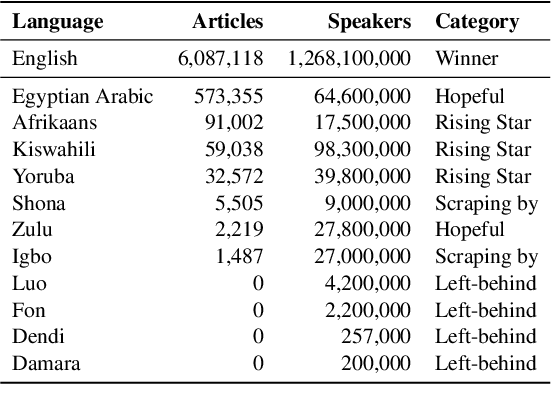
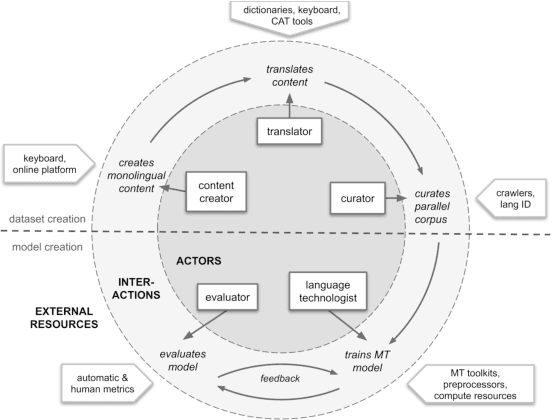
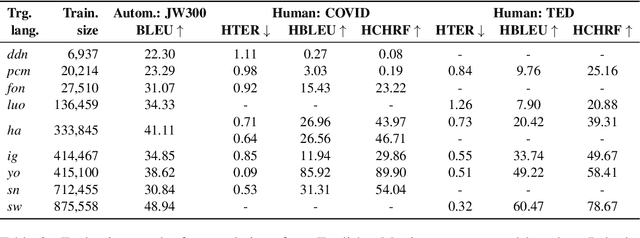
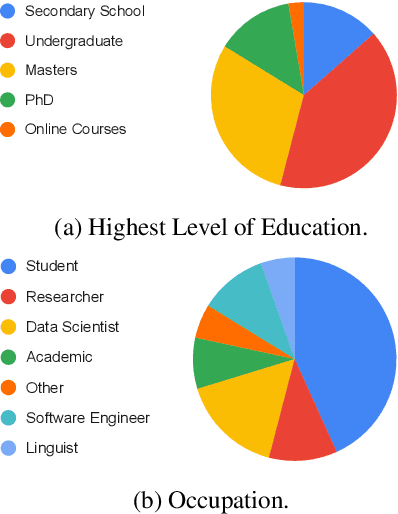
Abstract:Research in NLP lacks geographic diversity, and the question of how NLP can be scaled to low-resourced languages has not yet been adequately solved. "Low-resourced"-ness is a complex problem going beyond data availability and reflects systemic problems in society. In this paper, we focus on the task of Machine Translation (MT), that plays a crucial role for information accessibility and communication worldwide. Despite immense improvements in MT over the past decade, MT is centered around a few high-resourced languages. As MT researchers cannot solve the problem of low-resourcedness alone, we propose participatory research as a means to involve all necessary agents required in the MT development process. We demonstrate the feasibility and scalability of participatory research with a case study on MT for African languages. Its implementation leads to a collection of novel translation datasets, MT benchmarks for over 30 languages, with human evaluations for a third of them, and enables participants without formal training to make a unique scientific contribution. Benchmarks, models, data, code, and evaluation results are released under https://github.com/masakhane-io/masakhane-mt.
Masakhane -- Machine Translation For Africa
Mar 13, 2020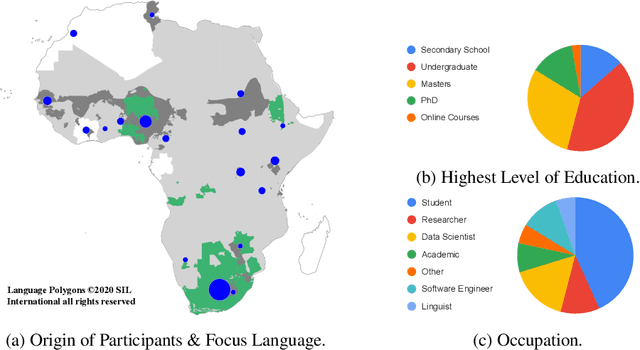
Abstract:Africa has over 2000 languages. Despite this, African languages account for a small portion of available resources and publications in Natural Language Processing (NLP). This is due to multiple factors, including: a lack of focus from government and funding, discoverability, a lack of community, sheer language complexity, difficulty in reproducing papers and no benchmarks to compare techniques. To begin to address the identified problems, MASAKHANE, an open-source, continent-wide, distributed, online research effort for machine translation for African languages, was founded. In this paper, we discuss our methodology for building the community and spurring research from the African continent, as well as outline the success of the community in terms of addressing the identified problems affecting African NLP.
 Add to Chrome
Add to Chrome Add to Firefox
Add to Firefox Add to Edge
Add to Edge